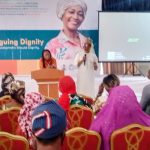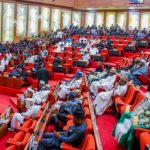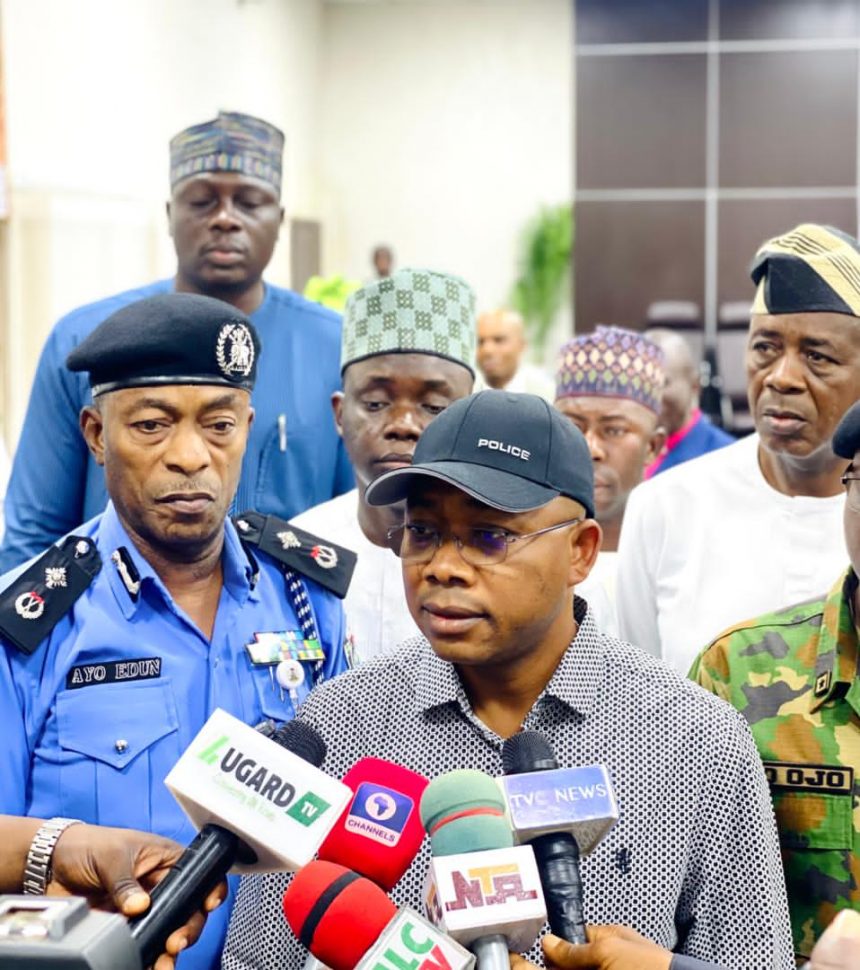Gov Ododo Declares Tough Security Measures as Kogi Leaders Unite Against Rising Threats
By Abah Benjamin Eneojoh
Government House, Lokoja
November 27, 2025
The Executive Governor of Kogi State, Alhaji Ahmed Usman Ododo, has unveiled a bold, far-reaching security blueprint, declaring that the state “will not bow to criminal intimidation,” as top traditional rulers, security agencies, and community leaders gathered at the Kogi State Peace and Security Council Meeting held on Thursday at Government House, Lokoja.
Governor Ododo described the gathering as one of the most strategic security engagements in recent times.
The meeting brought together influential stakeholders, including His Royal Majesty, Dr. Ahmed Tijani Muhammed Anaje, the Ohinoyi of Ebira, who delivered a strong message of unity, vigilance, and proactive community engagement.
In a firm, action-oriented address, Governor Ododo emphasized his administration’s unwavering commitment to keeping Kogi safe. He announced immediate measures aimed at closing security gaps, especially in mining areas which he described as “potential magnets for criminal groups if left unregulated.”
The Governor outlined a comprehensive security action plan that includes enhanced intelligence and surveillance operations, improvements in access to remote areas, and better logistics for rapid-response teams.
He also ordered a full profiling of all mining operations in the state, covering owners, locations, workers, outputs, and existing security arrangements, citing the risks associated with unregulated mining.
Ododo further directed Local Government Chairmen to submit complete lists of mining sites and companies within one week. As part of the new security requirements, mining and high-value companies are mandated to donate two Hilux vehicles each to the State Security Trust Fund within three months. He also called for strengthened joint security operations among the military, police, and paramilitary agencies, particularly around forests, schools, worship centres, and mining corridors.
Speaking on holiday travel and road safety, the Governor acknowledged President Bola Ahmed Tinubu for ongoing federal road projects and instructed security agencies to support the Federal Road Safety Corps from December 10, 2025, to January 15, 2026. He also emphasized increased responsibility for Local Government Chairmen, urging them to hold regular security meetings, support vigilantes, and fast-track mining data collection.
Traditional and religious leaders were assigned major roles in the new security architecture. Traditional rulers are to monitor land use and identify new entrants into their communities, while religious leaders are advised to promote peace and temporarily suspend night activities in worship centres.
Governor Ododo reiterated a zero-tolerance stance on criminal hideouts, warning that any house harbouring criminals will face demolition. He also directed the Ministry of Information to intensify grassroots sensitisation to prevent misinformation and panic. “Kogi State will remain strong, united, and secure,” the Governor declared, calling for full cooperation from citizens, youths, vigilantes, miners, and security agencies.
Speaking after the Governor, the Ohinoyi of Ebira, His Royal Majesty Dr. Ahmed Tijani Mohammed Anaje, praised the administration’s leadership and called for stronger community cooperation. He emphasized that security is a collective responsibility and urged citizens to stay alert, report suspicious movements, and secure their homes.
The monarch commended the state government for converting vigilante personnel into civil servants, describing the initiative as “strategic and timely” in strengthening grassroots security.
He further called for improved support to security agencies, highlighting the daily sacrifices of personnel and stressing the need for modern equipment, continuous training, better welfare, and deeper collaboration to enhance response capacity.
Addressing the root causes of crime, he urged the Government to tackle socio-economic drivers of insecurity by creating job opportunities, expanding quality education, and promoting inclusive development that would foster unity and tolerance across the state.












